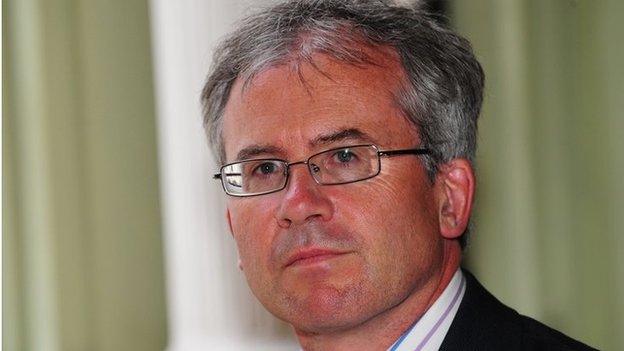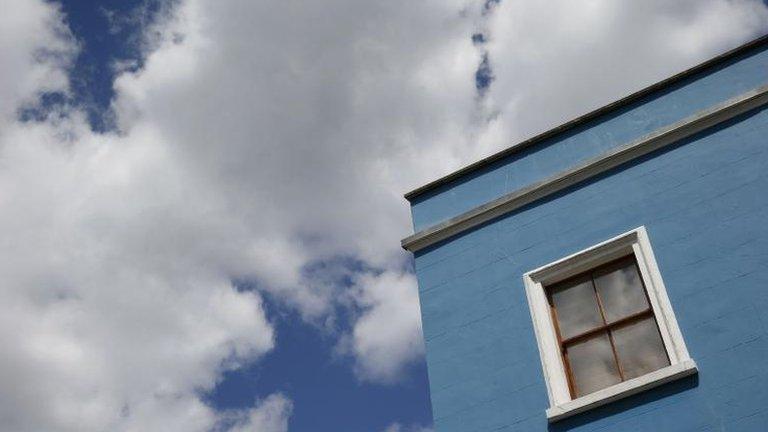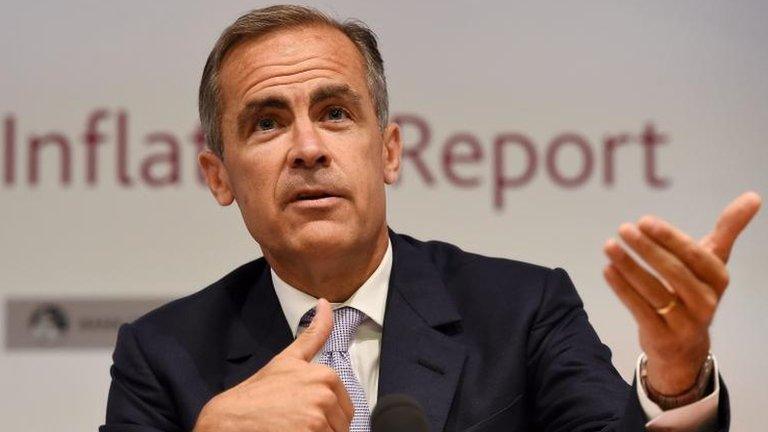Bank of England's David Miles was close to rates 'yes' vote
- Published

Mr Miles said he did not think that the 'alarm bells' were ringing over UK house prices
Bank of England policymaker David Miles has spoken of how close he came to a 'yes' vote on interest rates last week.
There was a "reasonable" case for raising rates to avoid a more rapid rise in the future, he told Bloomberg.
In the end, only one of the nine-member Monetary Policy Committee voted for a rise, but his comments underline how the balance is shifting.
Mr Miles, an expert on housing economics, also said the UK market was not getting out of control.
On rates, Mr Miles, who attended his final MPC meeting last week, said there were arguments for starting "the journey now" towards a rate hike.
He told Bloomberg, external: "Sterling had gone up a bit, oil prices had fallen a bit, there were somewhat ambiguous signals from the labour market, but on balance it was a set of economic news that probably reduced at least the near-term inflation profile by a non-trivial amount.
"For me that was what made the decision ultimately one to keep policy on hold. Ian McCafferty [who voted for a rise] came out on one side of that and I was on the other side, but it wasn't a compelling clear-cut case one way or the other for me."
However, he said that the longer the MPC leaves rates at the current 0.5% level, the faster they may need to rise in the future.
'Gradual'
With the UK economy on its current trajectory, "you wouldn't expect to be waiting around many, many months and well into next year before you started this journey".
Bank of England governor Mark Carney has said that when rates start to rise, they will do so only gradually.
At a news conference last week he said the timing for a Bank rate increase is "drawing closer", but cannot "be predicted in advance". The decision would be determined by looking at economic data, he added, including wage growth, productivity and import figures.
Several economists interpreted Mr Carney's comments, and information in the Bank's Inflation Report published last week, as a signal that any rate rise was likely to be put back from the end of this year until early 2016.
On the UK housing market, Mr Miles said he did not think that the "alarm bells" were ringing. New regulations and other improvements mean "the risk of all this playing out badly is much lower now than at any time in the past for the UK".
However, he added that the sensitivity of UK borrowers to changes in interest rates reinforces the case for a gradual increase from the current level.
- Published11 August 2015

- Published6 August 2015
